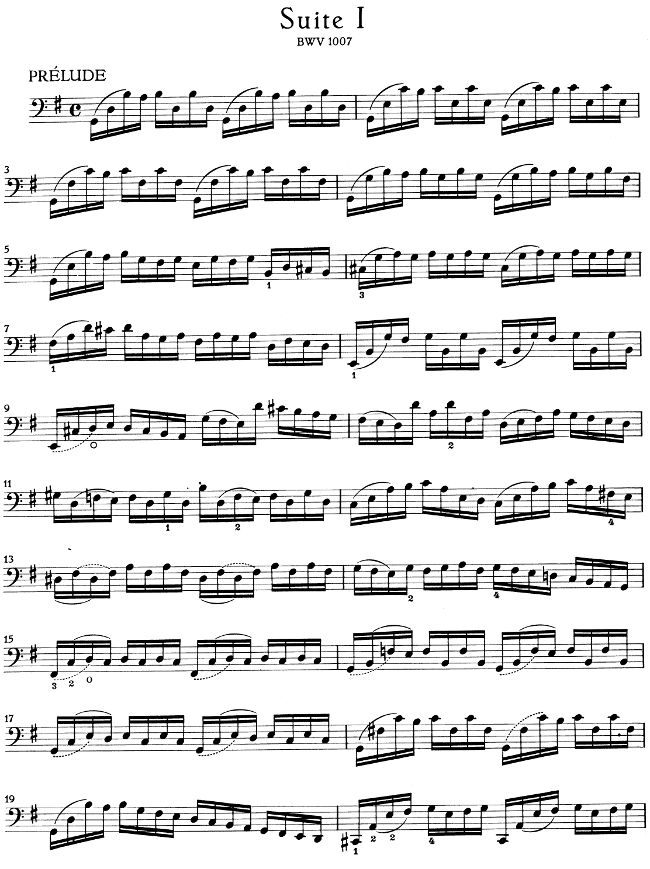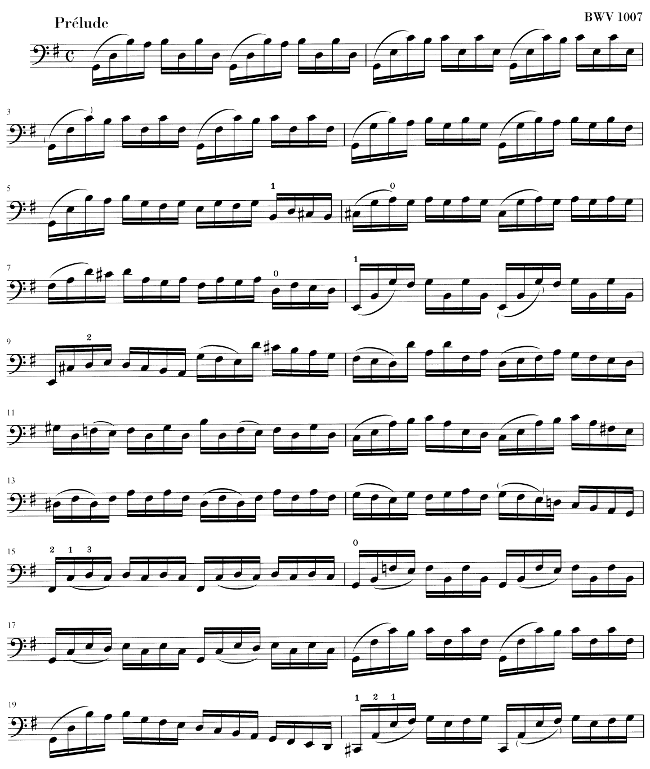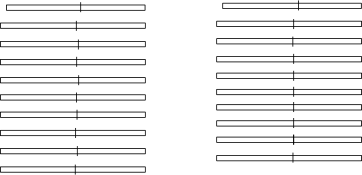| [ << Music engraving ] | [Top][Contents][Index] | [ Literature list >> ] |
| [ < Music engraving ] | [ Up : Music engraving ] | [ Engraving details > ] |
1.1 The LilyPond story
Long before LilyPond had been used to engrave beautiful performance scores, before it could create university course notes or even simple melodies, before there was a community of users around the world or even an essay on music engraving, LilyPond began with a question:
Why does most computer output fail to achieve the beauty and balance of a hand-engraved score?
Some of the answers can be found by examining the two scores below. The first score is a beautiful hand-engraved score from 1950 and the second is a modern, computer-engraved edition.
Bärenreiter BA 320, ©1950:

Henle no. 666, ©2000:

The notes here are identical, taken from Bach’s first Suite for solo cello, but the appearance is different, especially if you print them out and view them from a distance. (The PDF version of this manual has high-resolution images suitable for printing.) Try reading or playing from each of the scores and you will find that the hand-engraved score is more enjoyable to use. It has flowing lines and movement, and it feels like a living, breathing piece of music, while the newer edition seems cold and mechanical.
It is hard to immediately see what makes the difference with the newer edition. Everything looks neat and tidy, possibly even “better” because it looks more computerized and uniform. This really puzzled us for quite a while. We wanted to improve computer notation, but we first had to figure out what was wrong with it.
The answer lies in the precise, mathematical uniformity of the newer edition. Find the bar line in the middle of each line: in the hand-engraved score the position of these bar lines has some natural variation, while in the newer version they line up almost perfectly. This is shown in these simplified page layout diagrams, traced from the hand-engraved (left) and computer-generated music (right):
In the computer-generated output, even the individual note heads are aligned in vertical columns, making the contour of the melody disappear into a rigid grid of musical markings.
There are other differences as well: in the hand-engraved edition the vertical lines are all stronger, the slurs lie closer to the note heads, and there is more variety in the slopes of the beams. Although such details may seem like nitpicking, the result is a score that is easier to read. In the computer-generated output, each line is nearly identical and if the musician looks away for a moment she will be lost on the page.
LilyPond was designed to solve the problems we found in existing software and to create beautiful music that mimics the finest hand-engraved scores.
| [ << Music engraving ] | [Top][Contents][Index] | [ Literature list >> ] |
| [ < Music engraving ] | [ Up : Music engraving ] | [ Engraving details > ] |
